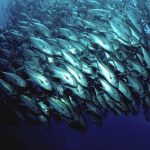 October 2, 2019 12:03 pm
Published by Climate Extremes
October 2, 2019 12:03 pm
Published by Climate Extremes
New research has used a combination of records from captains and scientific observers, FAD tracking data, ocean models and cutting edge simulation methods to reveal for the first time the trajectories and potential impact FADs may have on fisheries around Pacific island nations.
 September 30, 2019 9:19 am
Published by Climate Extremes
September 30, 2019 9:19 am
Published by Climate Extremes
This project analyzes satellite images and other observational data to study two-way interactions between convection and tropospheric waves. In particular, it investigates how these interactions influence patterns of
convection and clouds. Numerical experiments in the form of high-resolution simulations are designed to support the results.
 September 6, 2019 2:40 pm
Published by Climate Extremes
September 6, 2019 2:40 pm
Published by Climate Extremes
In this study, CLEX researchers use two years of measurements from a flux mooring combined with satellite data and model outputs to understand the seasonal changes in air‐sea fluxes and the role of ocean currents in controlling ocean surface temperatures in the southeast Indian Ocean.
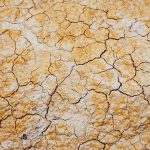 September 2, 2019 3:37 pm
Published by Climate Extremes
September 2, 2019 3:37 pm
Published by Climate Extremes
Melbourne’s existing water supplies may face pressure if global warming hits the 2℃ level. The effects of drying and warming in southern Australia are expected to reduce natural water supplies. If we overshoot 2℃ of warming, even the desalination plant might not provide enough drinking water to a growing population.
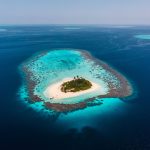 September 2, 2019 2:54 pm
Published by Climate Extremes
September 2, 2019 2:54 pm
Published by Climate Extremes
This paper reviews the societal and scientific motivations, current status, and future directions of IndOOS, while also discussing the need for enhanced observations in priority areas.
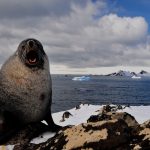 August 28, 2019 11:55 am
Published by Climate Extremes
August 28, 2019 11:55 am
Published by Climate Extremes
Observations from Antarctic seals fitted with scientific instruments have revealed how eddy driven transport may be driving the melting of ice shelves, with consequent impacts on sea-level rise.
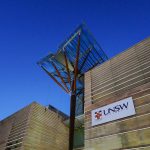 August 14, 2019 1:51 pm
Published by Jenny Rislund
August 14, 2019 1:51 pm
Published by Jenny Rislund
The CLEX node at the University of NSW is offering several PhD scholarships on a competitive basis. Details of how to apply can be found on this page along with some example projects offered by our researchers.
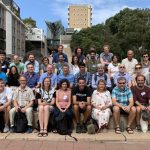 August 2, 2019 2:30 am
Published by Climate Extremes
August 2, 2019 2:30 am
Published by Climate Extremes
In early February 2019 an international cohort of around 40 oceanographers, marine biogeochemists and climate modellers gathered at UNSW to discuss the use of the Water Mass Transformation (WMT) framework for studies of ocean physics, biogeochemistry and climate. The workshop was an initiative of several CLEX early career researchers and gained interest from a diverse international community.
 August 1, 2019 7:00 am
Published by Climate Extremes
August 1, 2019 7:00 am
Published by Climate Extremes
The past four months have produced a sequence of impressive papers that should significantly improve the modelling of precipitation and our capacity to better understand how it may change in the future.
 August 1, 2019 1:00 am
Published by Climate Extremes
August 1, 2019 1:00 am
Published by Climate Extremes
The Centre has had a busy four months with its researchers having an impact nationally and internationally. The Centre has achieved some foundation and enabling research around the delivery of data, and a series of new research discoveries, that will play an important role in climate extremes research for some years. And Centre researchers are once again the winners of some major awards.










